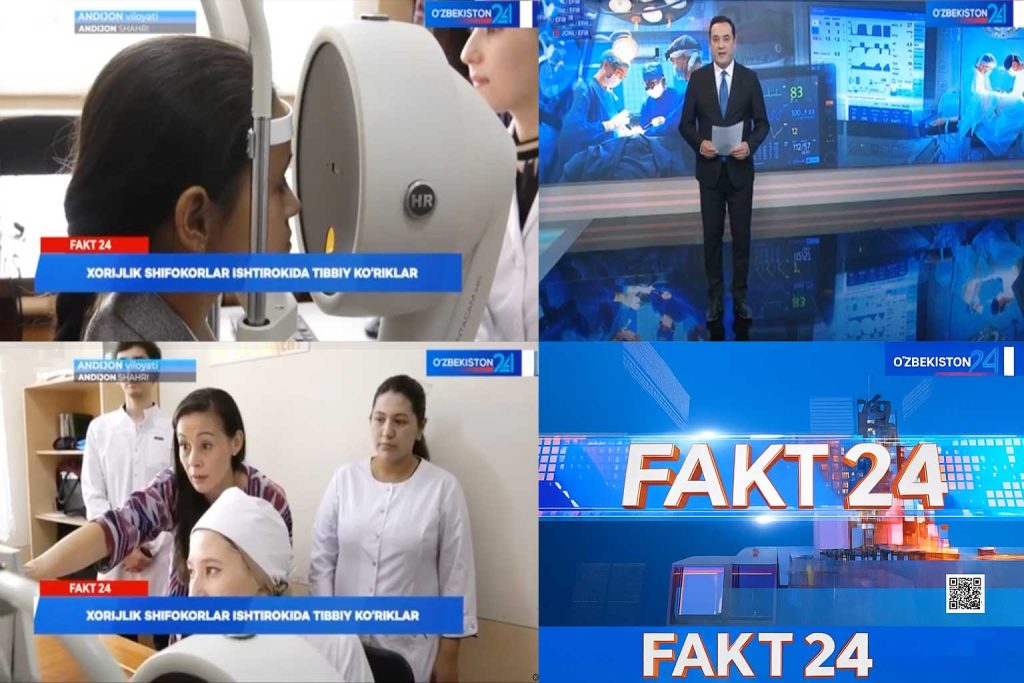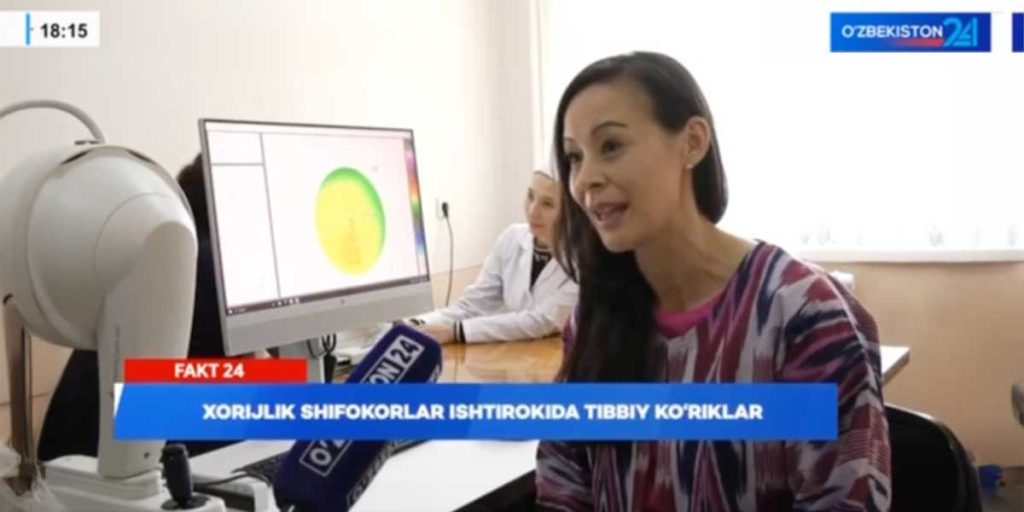From October 14–16, 2025, the K-MAP study (Keratoconus Mapping and Prevalence) expanded its reach to Andijan, Uzbekistan — marking the second national study site after Tashkent.
The screening event was led by Nikki Hafezi, MAS IP ETHZ, CEO of the ELZA Institute (Zurich, Switzerland), in collaboration with local ophthalmology partners and the regional health authorities.
The K-MAP study, an international initiative coordinated by the Light for Sight Foundation, performs keratoconus screening in Uzbekistan in order to determine the true global prevalence of keratoconus among pediatric and adolescent populations. Preliminary data suggest that keratoconus is far more common than historically assumed. The project builds upon pilot data from Saudi Arabia published by Emilio Torres-Netto et al. in the British Journal of Ophthalmology (2018), which identified a 4.79 % prevalence in pediatric patients – almost 100-fold higher than the long-cited Minnesota estimate of 0.05 % published in the 1980s.
By introducing the study to Andijan, the ELZA-led team is extending keratoconus screening to children across Uzbekistan’s Fergana Valley region. The Andijan site follows the standardized K-MAP protocol: screening with Scheimpflug corneal tomography (Oculus Pentacam HR), conducted by locally trained anterior segment specialists under ethical committee approval. The initiative enables early detection of corneal ectasia before visual function deteriorates – a prerequisite for effective, vision-preserving treatment with corneal cross-linking (CXL).

According to Nikki Hafezi, “K-MAP’s expansion to Andijan demonstrates the power of international collaboration. By combining Swiss clinical expertise with local commitment, we are building an evidence base that can guide national screening policies and protect children’s vision worldwide.”
K-MAP is now active in 12 countries, spanning Europe, the Middle East, Asia, and South America, and continues to attract new partners eager to improve pediatric ocular health. The inclusion of multiple sites within a single country – such as Tashkent and Andijan – allows for direct regional comparisons, enhancing the study’s epidemiological precision. Uzbek TV channel O’zbekiston24 reported on the keratoconus screening event on its nightly news show, FAKT 24.
